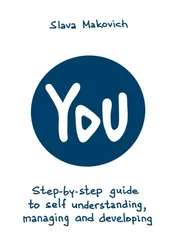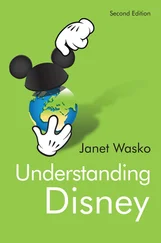Karen Hewitt
UNDERSTANDING BRITAIN TODAY
From the Author to the Reader
This book is an account of Britain and British life specially written for the Russian reader. In 1991 I wrote the first version of Understanding Britain for readers in the Soviet Union who were, as was clear at the time, on the brink of jumping into a very different world from the one that they had known. That book was intended to help them understand the very strangeness of 'the West' about which there were so many myths in Russia, and to explain to them some characteristics of British life in particular. It was revised in 1994 and again in 1995, but much of the ex-Soviet flavour remained.
Much has changed in both our countries since then. My responses to Russia in the early nineteen-nineties have been out-of-date for years, and even stable Britain is preoccupied with an unexpectedly different range of problems from those that were discussed so avidly nearly twenty years ago. Consequently, Understanding Britain has not been reprinted since 2004 during which time I have been searching for ways of revising it for a new edition. In the event I found that about four-fifths of the text had to be completely rewritten. Basically this is a new book, although it has many echoes and reminders of Understanding Britain for those who are familiar with that text.
I have therefore decided to call it Understanding Britain Today. 'Today' is 2009 but most of the material I expect to remain valid for many years. No doubt my version will be inadequate by 2020, but by that time someone else can take over the task.
In 1991 I was acutely aware of the differences in the attitudes of Soviet citizens towards economic transactions and work habits as compared with people in the West. You (or your parents) also had an image of an England in their minds which had disappeared decades ago or which had never existed. So my book concentrated on discussions of money, markets, choices and the class system. Since those days Russia has been through turbulent times and emerged with an understanding of the market as an institution which is not so very far from our understanding of it. Your debates about money and choice are almost familiar to us. And nobody now asks me questions about the workers as though we were living inside a Marxist diagram because you, too, have discovered that structures of work in a developed society are diverse and changeable. So I have abandoned the chapters on shopping in a market economy, on small businesses and on the class system in Britain - although I cannot help noticing that the postcard business in Russia is still hopelessly behind that in other countries. My British friends have too little sense of the beauties of particular places in Russia because of the lack of those postcards which I recommended!
I then had to ask myself whether a new book was needed at all. Russian teachers of English have mostly been able to buy English language textbooks published by major British publishers. These textbooks will tell you a fair amount about Britain with accompanying pictures and helpful charts. Unfortunately, because they are addressed to learners of English, the text and the ideas are simplified to a point where the information has little context and no density. If Russians, especially Russian students, are to think about the issues facing any modern society and especially to compare their own with a foreign society, they need more information, more explanation and more attempts to make comparisons. Somewhat reluctantly I decided to rewrite my book - and have found intellectual stimulation in doing so.
If market forces are no longer the alien phenomenon which they were twenty years ago, what distinguishes Russia from Britain? Apart from such obvious matters as geography, history and standards of living, all of which are all discussed in this book, I think the most striking distinction is the way we think about our relationship with those in power. The British political system is disturbingly undemocratic in ways which I analyse in my chapter on Politics, but we still have a complicated, involved and critical relationship with those who rule us; basically, they are constrained by the great public debates which are a response to what they do. They are public servants, elected representatives of the people. Russians do not think of their rulers thus. Therefore, in many chapters in the book (not just the chapter on Politics) I give examples of public debates and try to show how policies actually emerge from them. I also discuss failures of policy, for we make plenty of mistakes just as people and rulers do in any country. My point is that for us the Tsar is not so very far away, and we can - and do - call him back to reconsider his decisions and to submit himself to our criticism.
The other area in which British experiences and habits are unfamiliar to Russians is in what we can call 'Civil Society'. I can give an example. Many of my readers are also readers of the contemporary British novels provided for them by the Oxford Russia Fund. Several of these novels contain descriptions of characters taking part in some event or activity which is not fully explained. The readers ask me, 'Who has decided to arrange that event? Why did the authorities think it was a good idea to have such an activity? Who authorises the money to finance it?' These are useful questions because they distinguish between your expectations and ours. In Part Six of this book I try to answer the questions, giving as many examples as I can.
As for the sections on Personal Relationships, I have provided one chapter which is a fictional narrative in order to give a context for the issues discussed in the second chapter. The stories of my twenty-nine characters are also picked up in later discussions on, for example, our education system, our health service and our attitude to our laws. The third chapter looks at stories of older people since here again there are notable differences between your society and ours.
In discussing all these themes, my hope has been to encourage readers to think about the problems for themselves. I try to show both sides of a debate (such as the debate on what to do about illegal drugs, or the debate about teaching religion in schools) so that you can quickly identify where Russians and British confront problems in similar ways, and where our attitudes diverge. The statistics and other data can illuminate a situation, but they need interpretation and discussion if their meaning is to be understood.
Above all, Understanding Britain Today is an attempt to explain. Nevertheless, the explanations cannot come from some absolutely objective observer. This book is & personal account of my country. I have felt throughout writing it that I am answering specific questions from Russian friends and acquaintances, and intertwining my answers with much of my own experience and that of my relations and friends. So inevitably it has certain important limitations which I am very much aware of. I would be grateful if readers make a note of them before embarking on the main chapters.
First, I am a middle-class woman of later middle age, living in the prosperous south of England. I know as well as anyone that among the sixty-odd million people with whom I share my country are millions who are living in conditions which have not been adequately examined in these pages. If you are British and live in a big northern city, if your family includes people who work or have worked in declining industries, if your parents and circle of friends have never been near a university, and if you feel so disaffected from society that you would never think of voting in the next election, then your life scarcely touches those I have described. I have said far too little about the people who would fit more-or-less into this description for two reasons. I do not know enough. I have the statistics but not the reality. Although I have been searching for voices from these worlds I have mostly failed to find them. As people become more articulate they climb up the educational and social ladder; they tell me about their parents, but their own world is already much closer to mine. Also, those of you who come to Britain are unlikely to have close meetings with people who have little opportunity to meet educated foreigners. You will most probably meet the kind of people I describe in the book. Nonetheless, this is a big failing, and one which made me hesitate before deciding to re-write Understanding Britain.
Читать дальше












